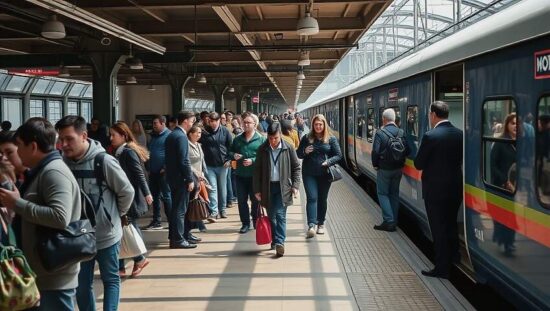Deutsche Bahn is considering a reduction in service and a significant increase in fares for its Intercity Express (ICE) and Intercity train routes, sparking criticism from politicians and consumer advocates.
Luigi Pantisano, the German Left party’s parliamentary transport policy spokesperson, told the Tagesspiegel newspaper that passengers would likely find the proposed price hikes and reduced service unacceptable. He stated that increases exceeding ten percent could prove unaffordable for many.
Earlier, Martin Burkert, leader of the EVG railway union, warned of imminent ten percent fare increases on long-distance routes. This follows an increase in track usage fees, known as “track prices”, leading to a shortfall of 95 million euros for DB Fernverkehr this year, according to Burkert, who also serves as deputy chair of the railway supervisory board.
Internal documents, cited by the Tagesspiegel, indicate that DB Fernverkehr plans to cut numerous ICE and Intercity connections to popular tourist destinations and smaller cities by 2026. Services to destinations like Lake Constance and Garmisch-Partenkirchen are reportedly set to be halved. Furthermore, Lübeck in northern Germany may no longer be served by long-distance trains and Kiel would lose direct connections to Cologne, Munich and Basel.
Claus Ruhe Madsen, Schleswig-Holstein’s Minister for Transport, voiced his disapproval, stating that the plans were “unsatisfactory”. While acknowledging the economic and infrastructural challenges faced by DB Fernverkehr, Madsen emphasized the state government’s commitment to ensuring the region remains well-connected to the national rail network.
Lukas Iffländer, deputy chair of the Pro Bahn passenger association, attributed the potential service cuts to policy failures. He argued that the federal government, as the owner of Deutsche Bahn, must define the desired level of long-distance service and its funding model. He criticized the federal government’s tendency to deflect responsibility by claiming that the state-owned, yet operating as an Aktiengesellschaft (stock corporation), Deutsche Bahn makes its own decisions regarding route offerings based on economic viability and track access.





